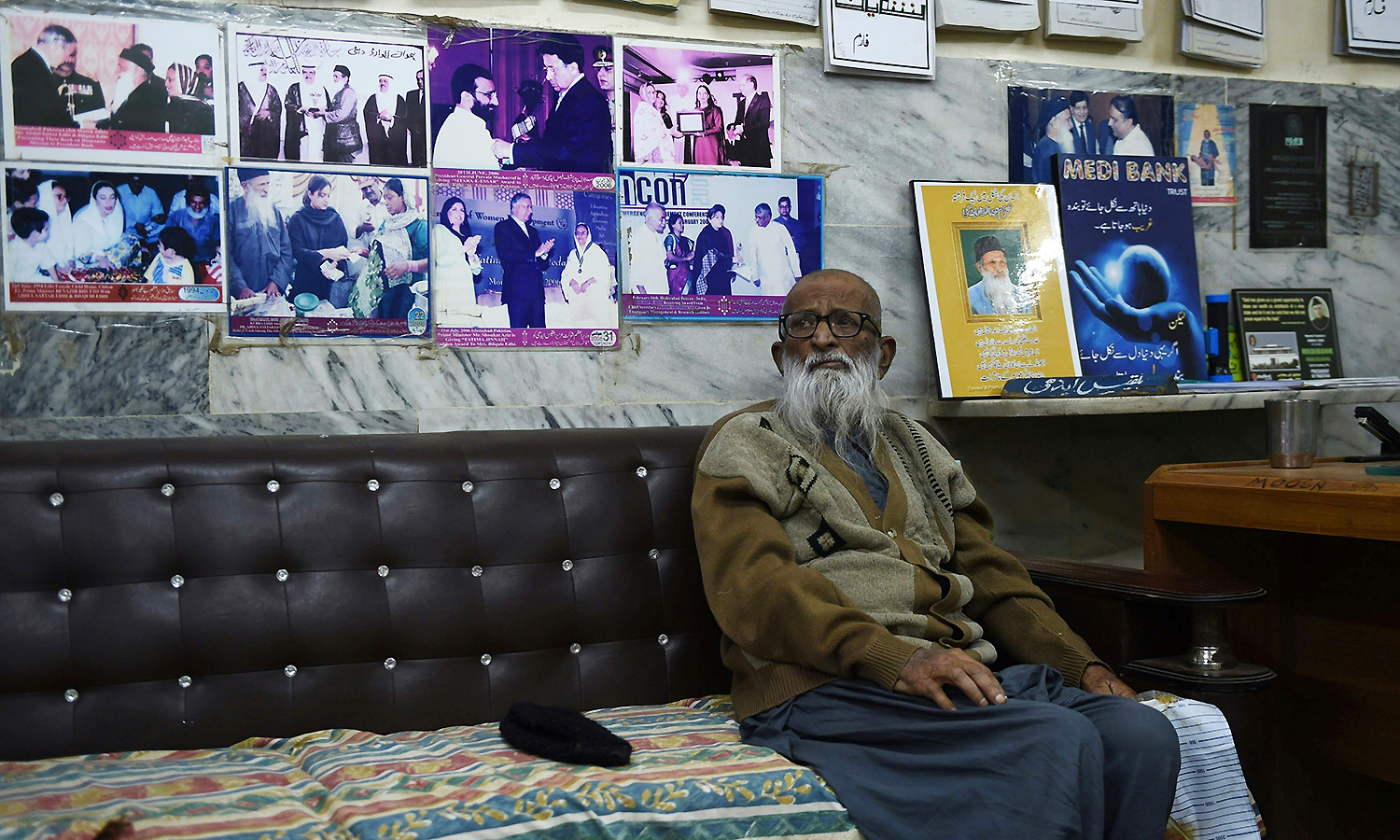Remembering Edhi, the exception to Pakistan's faults

This article was originally published on July 9, 2016.
For our entire lives, Abdul Sattar Edhi was the exception.
“All Muslims are terrorists.”
But, Edhi…
“All Pakistanis are corrupt.”
But, Edhi…
“All Karachiites are violent.”
But, Edhi…
“All men with beards are extremists.”
But, Edhi…
“All…”
“But, Edhi.”
Our lives as Pakistanis and the experiences within tell us that Edhi should not have been. People aren’t that noble in real life, no one can be that selfless truly.
To have access to millions of dollars, and still only own two changes of clothing, and the same cramped apartment in the same cramped part of the city.
To start with a single van in which he carried corpses, no matter their level of degradation. And to build the world’s largest volunteer ambulance service purely on the weight of reputation alone.
Take a look: Edhi, the man, the idea
These things do not happen. People don’t remain uncorrupted their entire lives. Politics gives them promises of power, wealth gives them a lust for luxury, religion gives them the narcissistic egotism of a messiah.
But, Edhi.
I know people who when they met him in person, were so overcome with emotion, they wept. I did too.
He was small, frail in appearance, even years ago. Until you noticed his arms. Edhi’s hands were the kind that only develop after a life of hard work, with gnarled fingers and a fierce, yet effortless grip.
His forearms were thick, muscled from carrying the dead, carrying the children, carrying the weight of all our exceptions.
People aren’t that brave, they cannot be.
But, Edhi.

Edhi did not stop working. Even when the religious parties lashed out against him because he didn’t discern between Muslims and non-Muslims, he kept on sending his ambulances out to save the wounded and to bury the dead.
They hurled abuse at him for not praying as much as they did, yet he kept working. He knew, as did we all, that they hated him because he showed their farce for what it was. They could pray all day and pass judgement all night, but they would never be as revered as he was.
Political parties threatened him, yet he kept working.
One night, when I was working in a newsroom many years ago, Karachi had been submerged under monsoon rains. The death toll was high, higher than the ruling political party could allow.
They knew they couldn’t stop people dying, not in a Karachi so neglected by development and consideration for care, so they instead stopped the ambulances from collecting the dead — the toll would not rise if there were no more bodies to count.
Edhi’s son called the news channels for help. The political party leaders also called, to threaten with silence. No channel ran the story. Yet, Edhi kept working. He personally went to collect the corpses, knowing they would not kill him. Anyone else they would have.
But, Edhi.

Gangs fighting in Lyari would cease fire to allow his ambulances to collect bodies. Infants, who would have died unwanted, were saved by his cots, given lives through his orphanages.
He began with a single van, and died with a fleet of ambulances, helicopters, orphanages, and an army of volunteers dedicated to saving life. Even in death, he donated his last functioning organs, a final act of charity.
Pakistanis know how to grieve; it is the one thing we know all too well. However, I worry that this grief is too large for all of us — it is the kind of grief that no one can carry for us. But, Edhi.
Sami Shah is a comedian, writer, and doer of other stuff.
Find out more about him here








